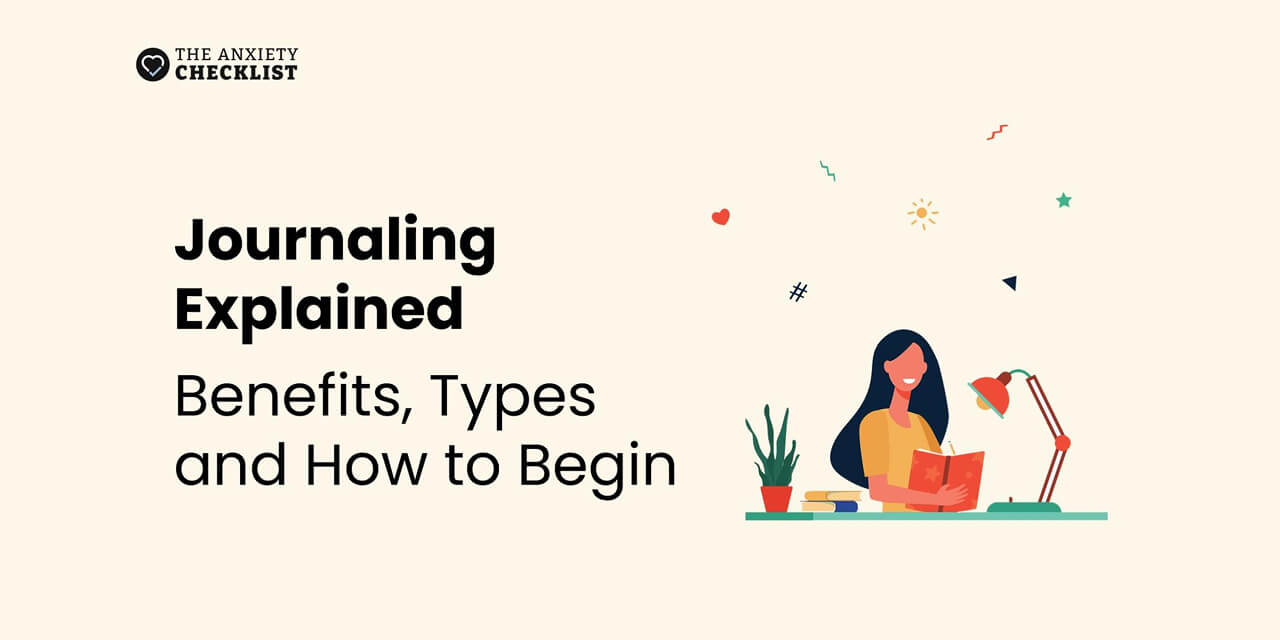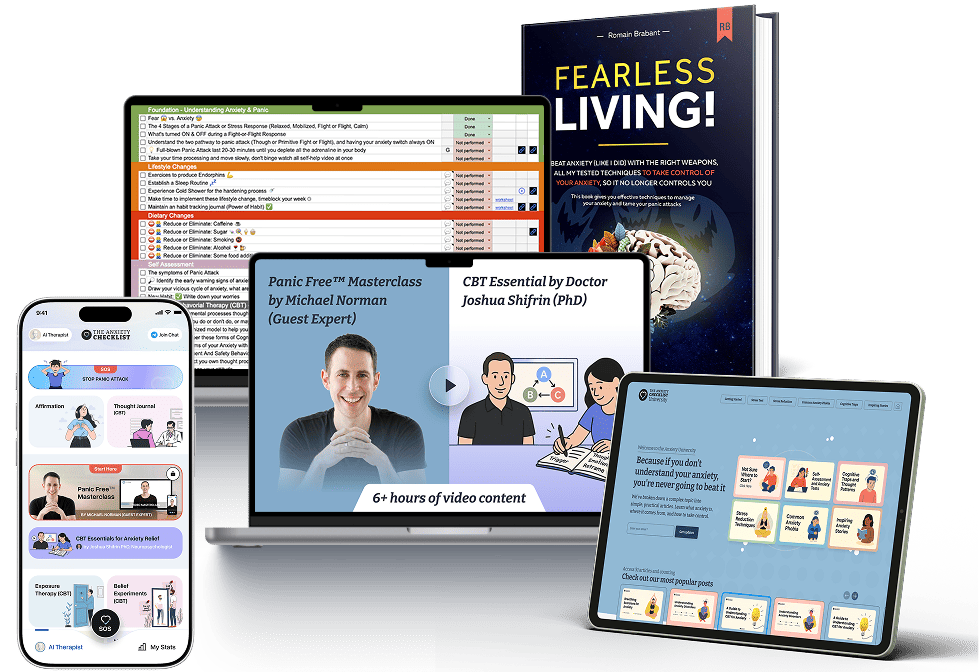When anxiety hits, do you know what to do next?
Learn how to calm your body, interrupt fear loops, and regain control step by step.
What Is Journaling?
It’s the simple act of writing down your thoughts, feelings, ideas, or daily experiences. Journaling is a habit that can shape how you think, feel, and respond to life.
You don’t need to write full paragraphs or follow grammar rules. The point is to get your thoughts out of your head and onto the page. That release is where the power lies.
Journaling isn’t just about what happened. It’s about what you noticed, felt, feared, hoped, or questioned. It’s a tool for self-awareness, healing, and direction.
Now, let’s look at the different benefits of journaling.
Popular Types of Journaling
Not every journaling method works the same way for everyone. The key is to find one that fits your lifestyle, mindset, and goals. Here are some of the most effective types to explore:
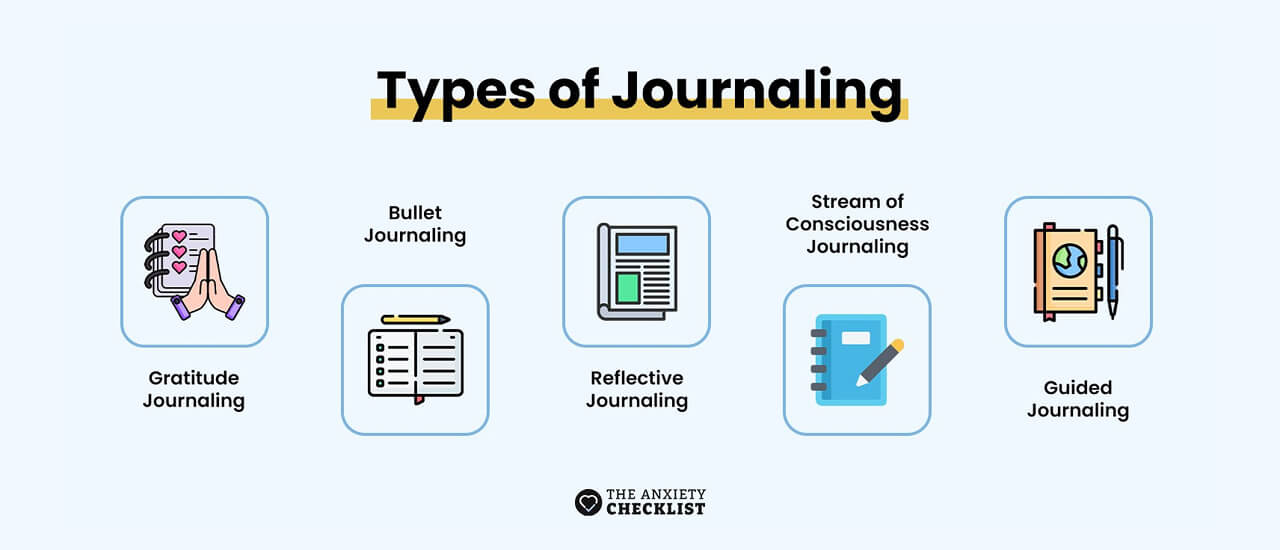
Gratitude Journaling
Gratitude journaling is the habit of writing down things you’re thankful for each day. It helps shift your focus toward what’s going well instead of what’s missing.
This practice can help build emotional resilience, lower stress, and improve your overall mood. You can start with just three simple lines a day.
Bullet Journaling
Bullet journaling combines journaling with productivity. It uses quick notes, symbols, and short lists to track habits, goals, and tasks. It’s a flexible system that helps you stay organized and focused while still giving space for personal reflection.
Reflective Journaling
Reflective journaling involves looking back on your experiences and writing about what they meant to you. It helps you learn from challenges, recognize patterns, and gain perspective. This type of journal writing is useful for personal growth and decision-making.
Stream-of-Consciousness Journaling
This is free writing with no structure, rules, or filters. You simply write whatever comes to mind. The goal is to let thoughts flow without judgment. It’s especially helpful for clearing mental clutter or working through difficult emotions.
Guided Journaling
Guided journaling uses prompts or questions to help you explore specific topics. It’s ideal for people who feel stuck or don’t know where to start. Journaling prompts can focus on anything from mindset and goals to relationships and past experiences.
Mental Health Journaling
This method supports emotional wellness by helping you track symptoms, triggers, and progress. It can be used alongside therapy or as a solo practice. Mental health journaling brings structure to emotional reflection and gives you insights into your coping patterns.
Benefits of Journaling
Journaling works, and the more consistently you do it, the more benefits you’ll notice.
Here are some of the core benefits of journaling:
1. Reduces Anxiety and Stress
Most people carry stress without even realizing how much it’s affecting them. Thoughts pile up, emotions stay unresolved, and before long, everything starts to feel heavy.
When you write down what’s in your head, you let go of the pressure. Journaling gives your mind a place to release worries, overthinking, and mental noise that build tension.
It also improves your ability to regulate emotions and control panic attacks. Over time, journaling works well as part of your anxiety meditation practice. With it, you can stay calmer, feel more grounded, and respond to situations with a clearer head.
Journaling doesn't need to be deep or poetic. You can write exactly what you’re feeling, even if it’s messy or unclear. The goal isn’t to sound good; the goal is to feel better, and with regular practice, you will.
2. Improves Focus and Clarity
Your brain is constantly processing thoughts, plans, worries, and reminders. Journaling doesn’t just help you clear your head; it helps you focus your attention. When you write things down, you move from mental chaos to structured thinking.
By making your thoughts visible, you gain control over them. Instead of reacting to everything at once, you can focus on one thing at a time. This simple shift can improve concentration and decision-making.
If you ever feel stuck or mentally foggy, try journaling for five minutes. You’ll often come away with more clarity than when you started.
3. Helps You Process Emotions
Journaling gives you a private space to feel without judgment. When emotions like anger, sadness, or confusion build up, it’s easy to feel overwhelmed.
Writing helps you name what you’re feeling and understand where it’s coming from. Pairing journaling with simple breathing exercises that can calm your body while your thoughts settle on paper.
That small act can prevent you from shutting down or reacting in ways you might regret. Instead of avoiding your emotions, you face them head-on.
Over time, you’ll become more aware of your emotional responses, and that awareness leads to better self-control. Journaling won’t erase pain, but it helps you carry it differently. That’s what makes it a powerful tool for emotional growth.
4. Enhances Self-Awareness
Journaling makes you more aware of your thoughts, habits, and triggers.
When you write regularly, you’ll start to notice patterns: what lifts your mood, what drains your energy, and how you react in certain situations. This awareness helps you make better choices.
You stop moving through life on autopilot and start paying attention to what matters. It becomes easier to spot when you are slipping into old habits or unhelpful thinking.
After a while, your journal becomes a record of growth. You learn more about who you are, what you need, and how to take care of yourself.
5. Improves Mood and Emotional Balance
Writing helps you slow down and check in with yourself. When you journal consistently, you create a space to release frustration, reflect on small victories, and track your emotional highs and lows.
This habit can shift your mindset over time. Instead of letting emotions pile up, you process them as they come. That regular release builds stability, and you start to feel more balanced, less reactive, and more in control of your mood.
Even five minutes a day can lift your emotional state and help you stay grounded through everyday stress and uncertainty.
6. Supports Goal Tracking and Productivity
Another benefit of journaling is that it keeps your goals visible and your progress measurable. When you write down what you want to achieve, it becomes harder to ignore. It also helps break big goals into smaller, manageable steps.
You can track wins, notice setbacks, and stay focused without feeling overwhelmed. That kind of clarity improves how you plan and execute tasks.
Journaling also builds discipline. Just showing up to write every day reinforces the habits that help you follow through on your goals.
7. Strengthens Memory and Learning
Noting things down helps you remember them. When you journal about your day, a new idea, or something you’re trying to learn, your brain processes that information more deeply. You’re not just thinking, you’re actively engaging with the content.
This improves recall and understanding. That’s why journaling is often used by students, professionals, and anyone trying to build knowledge.
It also helps you reflect on past experiences and connect them to what you’re learning now. Over time, your journal becomes a resource you can revisit to track growth and reinforce lessons.
8. Boosts Gratitude and Positive Thinking
Gratitude journaling shifts your focus from what is wrong to what is working. When you make it a habit to write down a few things you are thankful for, your brain starts to notice more positives throughout the day.
This small practice can improve your overall outlook and build emotional resilience. It is not about ignoring challenges. It is about training your mind to see both sides.
With time, gratitude journaling can help reduce negative thinking, improve your mood, and create a more balanced view of your life. The result is a calmer, more hopeful mindset.
9. Enhances Mindfulness and Presence
Journaling brings your attention to the present moment. Instead of getting lost in what happened yesterday or worrying about what might happen tomorrow, writing helps you focus on what is true right now. You become more aware of your thoughts, surroundings, and emotional state.
Journaling also slows your pace and helps in grounding. You stop rushing through the day and start paying attention to how you feel and what you need.
With regular practice, journaling becomes a simple way to stay grounded, focused, and connected to yourself throughout your day.
10. Improves sleep and relaxation
Journaling before bed can help you sleep better. When your mind is full of unfinished thoughts, worries, or tomorrow’s to-do list, falling asleep can feel impossible. Writing helps clear out that mental clutter.
You give your thoughts a place to land, so they don’t keep circling while you try to rest. It also helps lower stress by calming your nervous system.
Some people use journaling to reflect on their day, while others write down what they’re grateful for. Either way, the result is the same: a calmer mind and a body ready to relax. That leads to deeper, more restful sleep.
How to Start a Journaling Practice
Starting a journaling habit doesn’t have to be complicated. You don’t need fancy tools or perfect writing skills. What matters is consistency and intention. Here’s how to begin:
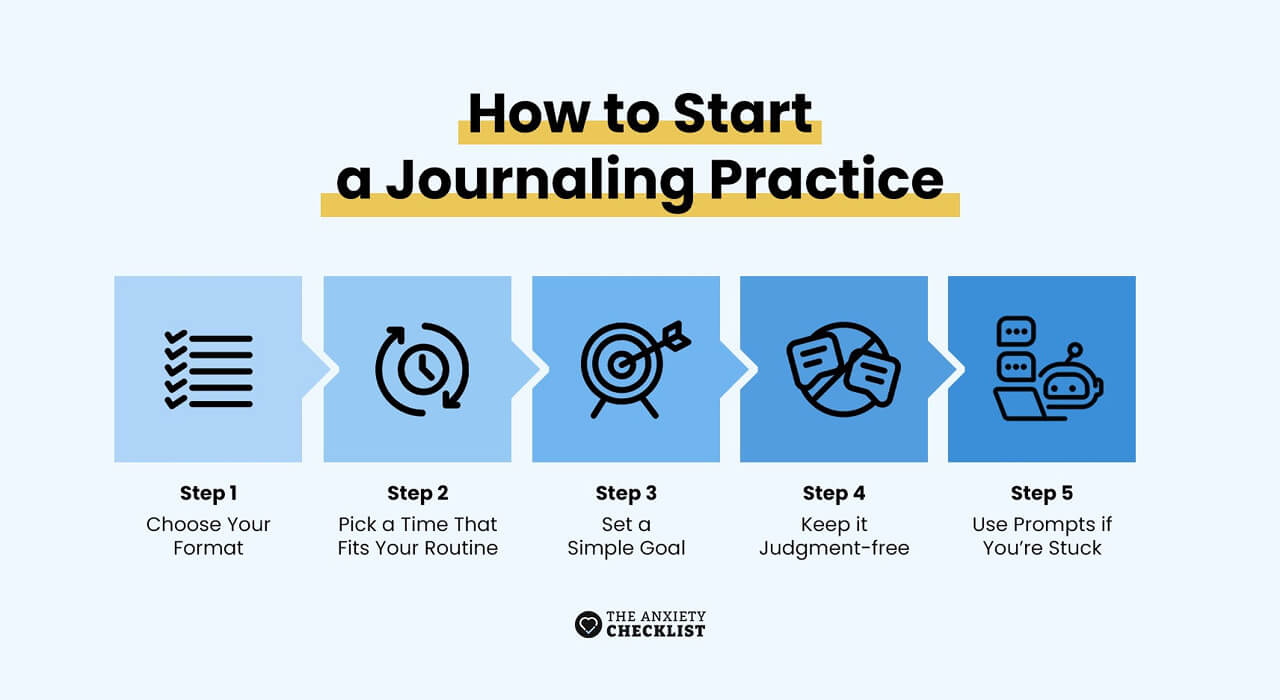
How to Stay Consistent With Your Journal Writing
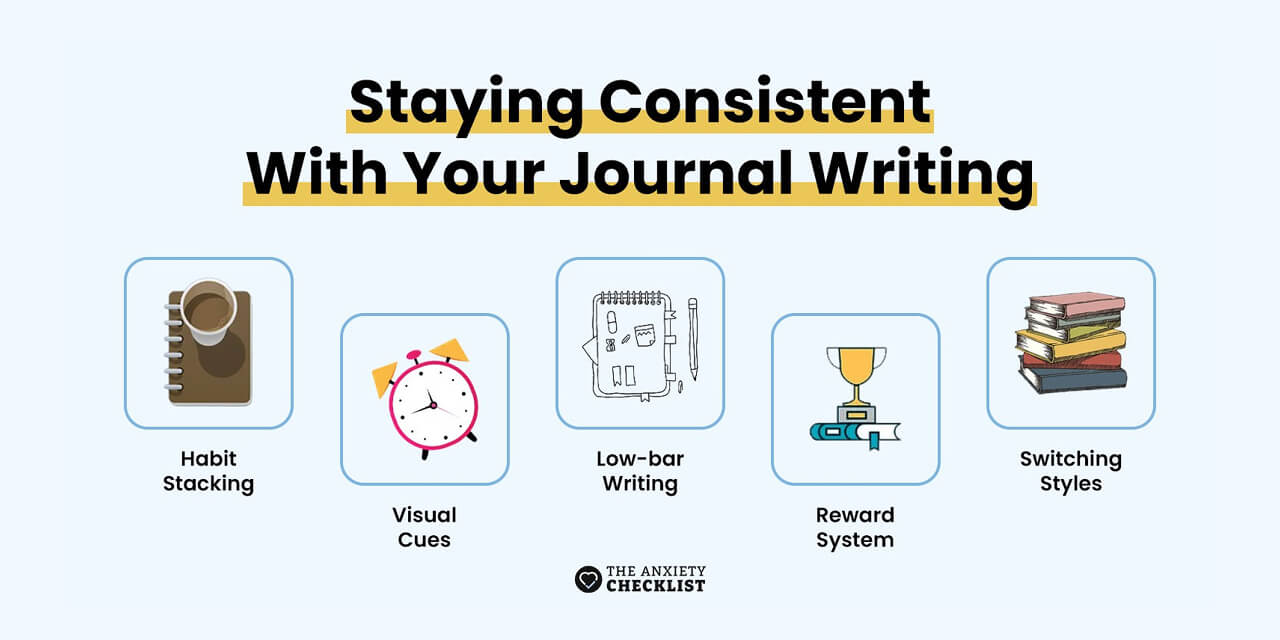
Journaling gets easier when it becomes a habit, not a task you have to force. But let’s be honest, sticking to it daily can feel tough, especially when life gets busy or motivation dips. Here’s how to make it part of your routine without stress:
Frequently Asked Questions
Final Thoughts
Previous Article
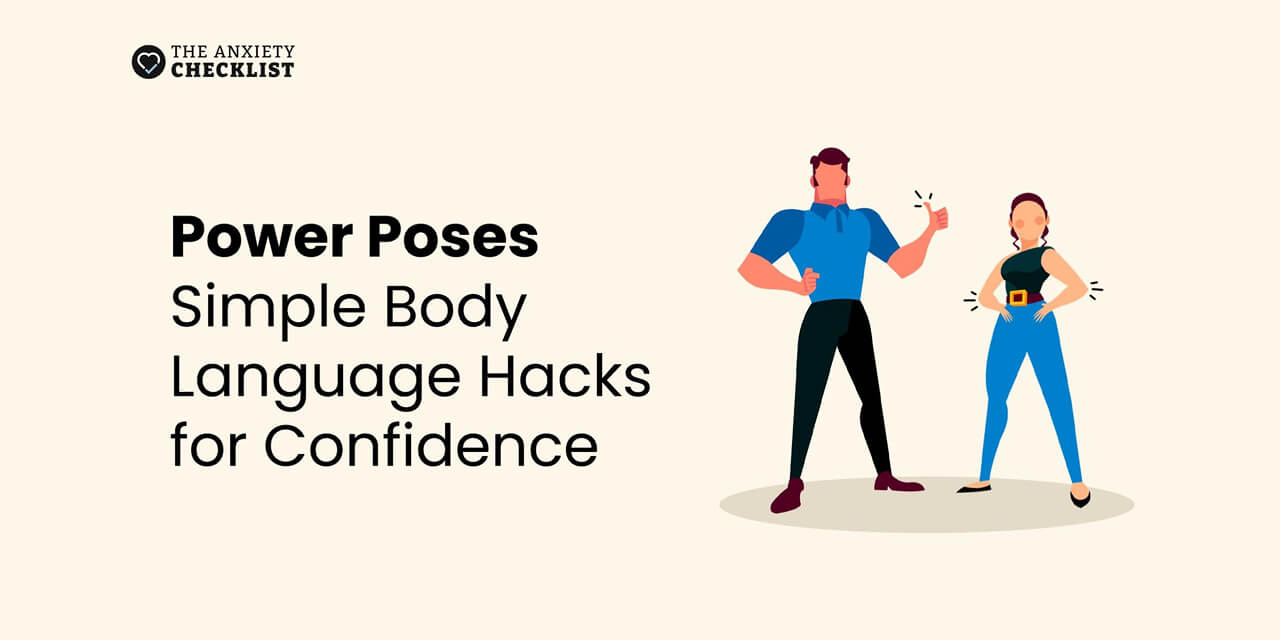
Power Poses: Simple Body Language Hacks for Confidence
Next Article
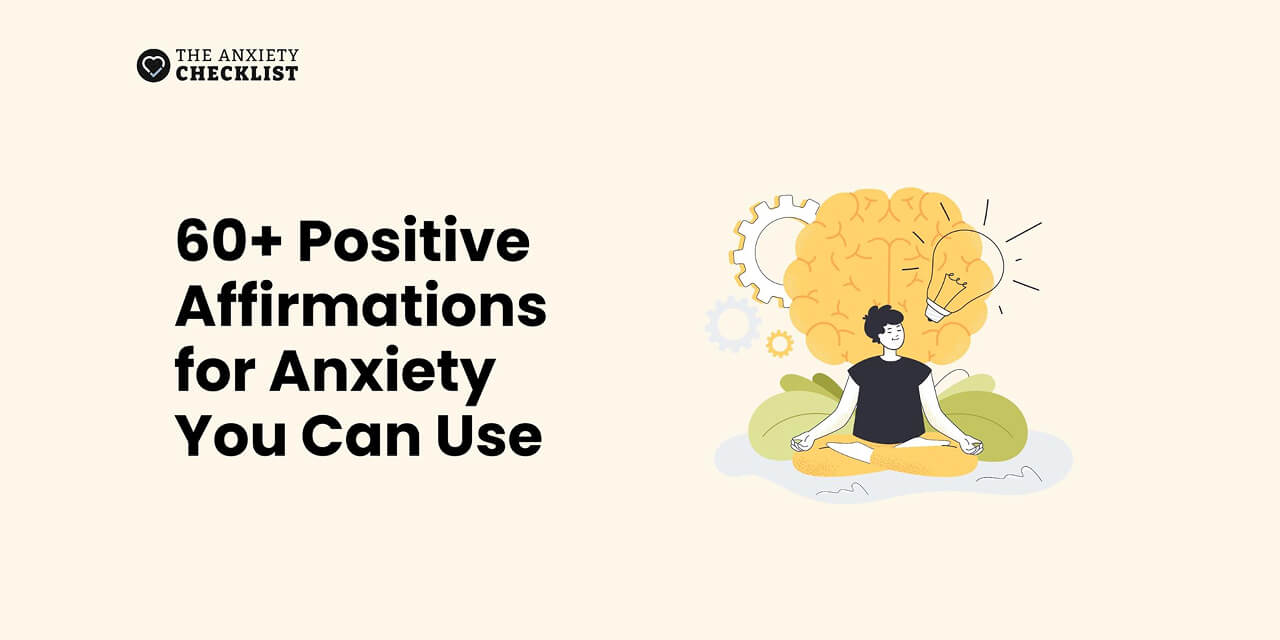
60+ Positive Affirmations for Anxiety You Can Use
If you are in a crisis or any other person may be in danger - don't use this site. These resources can provide you with immediate help.



